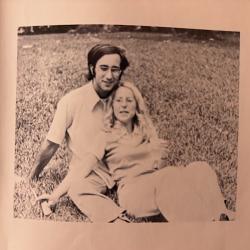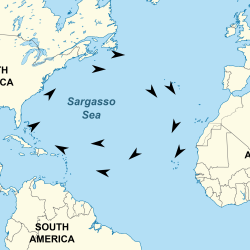Persistence Pays Off (Student Profile)
From identifying plants at the base of Mt. Saint Helens outside Portland to studying the coral reefs of Bermuda, Laura Weber, B.S. ’12, biology, participated in as many research projects as possible during her CMNS career. She encouraged that level of involvement among her peers as the student speaker for the CMNS December 2012 Commencement. “We need to appreciate each day for the opportunities that we have, for the obstacles that we can overcome, and for the renewed chance of improving ourselves for the better,” she told commencement participants.
When Weber transferred to CMNS in spring 2010, she “understood the importance of hands-on experiences and making connections to active researchers.” That summer she traveled with Biology Professor Bill Fagan’s research group to Mt. Saint Helens for three weeks to participate in ecology field research. Weber helped conduct vegetation surveys, characterizing different types of habitats. The research was used by the U.S. Forest Service and as part of a doctoral study on the correlation between vegetation and types of birds. “We were up at the crack of dawn at the site and spent 12 hours identifying plants and shrubs and measuring the width and diameter of trees,” Weber describes.
The trip confirmed Weber’s desire to work in nature. “It was so peaceful and beautiful to be surrounded by nature, to appreciate it and actively become part of it. I realized I was becoming a scientist,” recalls Weber.
She also gained experience as an undergraduate teaching assistant for an organismal biology course and served as a volunteer undergraduate research assistant in Biology Associate Professor Karen Lips’s lab. There she sampled and analyzed bacteria and fungi on salamander skin to identify antibiotic properties that could be used to control a fungus attacking frogs. “All of these experiences were helping me prepare for life as a graduate student,” says Weber.
As recipient of the Erik P. Young, M.D., International Travel Study Abroad Award, Weber spent fall 2012 at the Bermuda Institute of Ocean Sciences, where she took a scuba-diving research methods course and collected specimens for her independent research project focusing on the interaction between microbes and corals while completing coral reef ecology and invertebrate biology courses. Weber is now working at the Woods Hole Oceanographic Institute’s Marine Chemical and Geochemistry Department in Massachusetts analyzing both the microbial and chemical components of coral mucus as part of the Guest Student Researcher Program.
This fall, she hopes to begin her graduate studies with a focus on coral reef microbiology. “I want to investigate microbe assemblages that live on coral and improve coral survival rates in stressful, changing environments,” Weber explains. “We need to learn why corals in Indonesia and the Pacific may adapt to climate change better than those in the Caribbean.”
Through all of her varied research experiences, Weber has learned valuable lessons. “Keep seeking opportunities, no matter what the probability of getting that scholarship or internship. Be persistent, and take risks. Every experience will help you become the scientist you are meant to be.”







